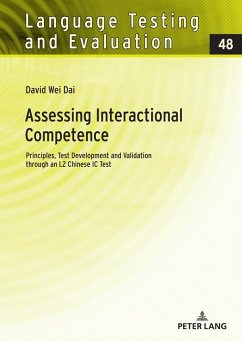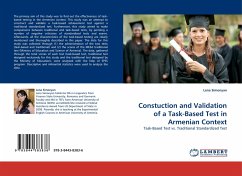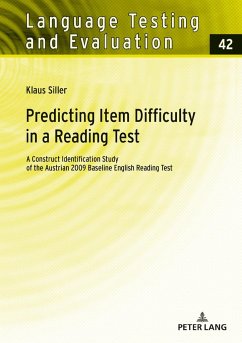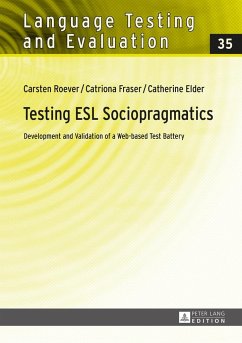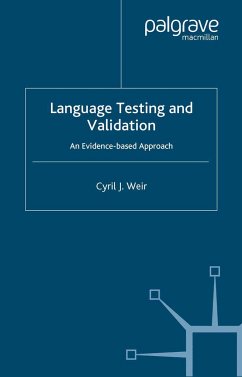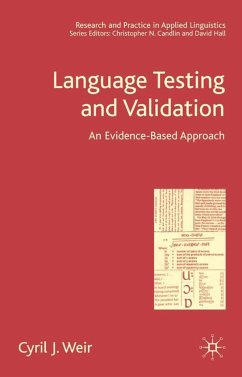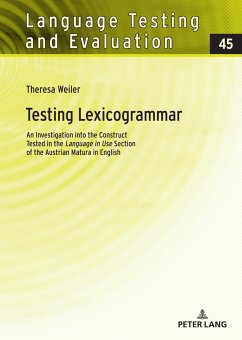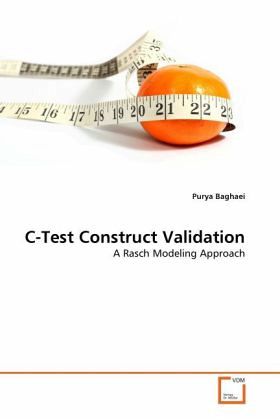
C-Test Construct Validation
A Rasch Modeling Approach
Versandkostenfrei!
Versandfertig in 6-10 Tagen
52,99 €
inkl. MwSt.

PAYBACK Punkte
26 °P sammeln!
C-Test is an economical test of general language proficiency in the first and second language. Ease of construction and scoring coupled with its cost- effectiveness have made C-Test a useful instrument for institutions which need a quick placement instrument and second language researchers who need a measure of learners' general language proficiency. The present book addresses C-Test construct validity by using the latest developments in modern measurement theory. Probing into the dimensionality of C-Test is the main focus of the book. Rasch modeling is used to study different aspects of C- Te...
C-Test is an economical test of general language proficiency in the first and second language. Ease of construction and scoring coupled with its cost- effectiveness have made C-Test a useful instrument for institutions which need a quick placement instrument and second language researchers who need a measure of learners' general language proficiency. The present book addresses C-Test construct validity by using the latest developments in modern measurement theory. Probing into the dimensionality of C-Test is the main focus of the book. Rasch modeling is used to study different aspects of C- Test construct and to clarify the dimensionality issue. In this endeavor exploratory factor analysis, Rasch rating scale model, differential person and item functioning (DIF/DPF), principle component analysis of residuals (PCAR) and item and person measures invariance are used. The results should help C-Test users make informed decisions when embarking on using C-Test for their next testing project. It should also be useful to language testing researchers who want to investigate some ripe areas of research in C-Test.



